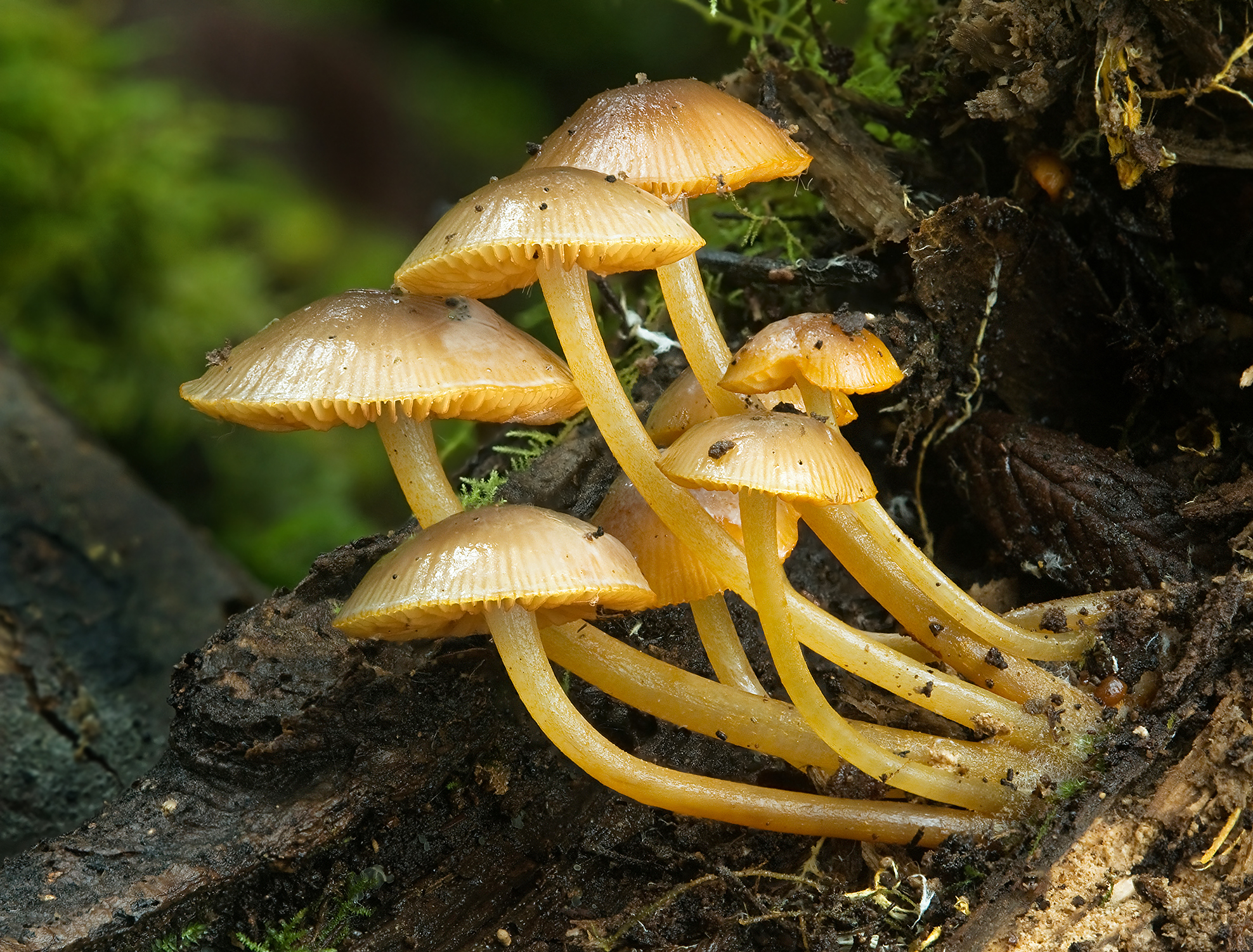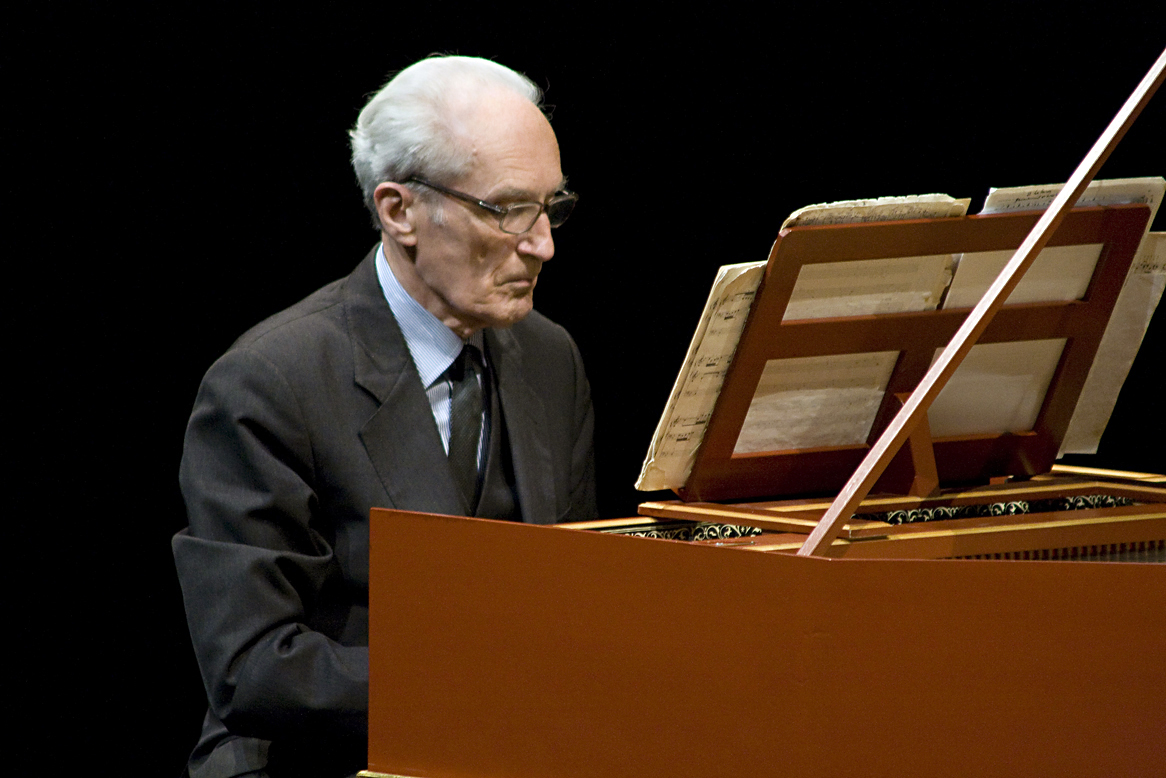|
Scott Ross (harpsichordist)
Ross in 1985 Scott Ross (March 1, 1951 – June 13, 1989) was a United States-born harpsichordist who lived in France and Canada for many years. His recordings include the first complete recording by a single performer of the 555 harpsichord sonatas of Domenico Scarlatti. Biography Scott Stonebreaker Ross was born in Pittsburgh, Pennsylvania. He was nearly crippled by a severe scoliosis that kept him in a corset for much of his early life. He studied piano and organ in Pittsburgh. Following the death of his father he moved to France with his mother in 1964, where he studied harpsichord at the Conservatoire de Nice. While he was living in Nice, his mother committed suicide when Ross was aged 19. After completing his studies at Nice, he enrolled at the Conservatoire de Paris. In 1971 he was awarded the prestigious first prize of the "Concours de Bruges". Ross also took classes at the Royal Conservatoire of Antwerp from Kenneth Gilbert. He then began a teaching career at ... [...More Info...] [...Related Items...] OR: [Wikipedia] [Google] [Baidu] |
Scott Ross
Scott Ross may refer to: * Scott Ross (film executive) (born 1951), Founder, Chairman, and CEO of Digital Domain (1993–2006); pioneer in digital entertainment * Scott Ross, interviewer for ''The 700 Club'' with ties to various 1960s and 1970s rock musicians * Scott Ross (American football) (1968–2014), American football player * Scott Ross (Oz), Scott Ross (''Oz''), character on the HBO series ''Oz'' * Scott Ross (private investigator) * Scott Ross (harpsichordist) (1951–1989) {{hndis, Ross, Scott ... [...More Info...] [...Related Items...] OR: [Wikipedia] [Google] [Baidu] |
Université Laval
Université Laval is a public research university in Quebec City, Quebec, Canada. The university was founded by royal charter issued by Queen Victoria in 1852, with roots in the founding of the Séminaire de Québec in 1663 by François de Montmorency-Laval, making it the oldest centre of higher education in Canada and the first North American institution to offer higher education in French. The university, which was founded in Old Québec, moved to a new campus in the 1950s in the suburban borough of Sainte-Foy–Sillery–Cap-Rouge. It is ranked among the top 10 Canadian universities in terms of research funding and holds four Canada Excellence Research Chairs. Like most institutions in Québec, the name "Université Laval" is not translated into English. History The university's beginnings go back to 1663 with the founding of the Grand Séminaire de Québec and 1668 with the founding of the Petit Séminaire by François de Montmorency-Laval, a member of the House of Laval ... [...More Info...] [...Related Items...] OR: [Wikipedia] [Google] [Baidu] |
Frédéric Chopin
Frédéric François Chopin (born Fryderyk Franciszek Chopin; 1 March 181017 October 1849) was a Polish composer and virtuoso pianist of the Romantic period, who wrote primarily for solo piano. He has maintained worldwide renown as a leading musician of his era, one whose "poetic genius was based on a professional technique that was without equal in his generation". Chopin was born in Żelazowa Wola in the Duchy of Warsaw and grew up in Warsaw, which in 1815 became part of Congress Poland. A child prodigy, he completed his musical education and composed his earlier works in Warsaw before leaving Poland at the age of 20, less than a month before the outbreak of the November 1830 Uprising. At 21, he settled in Paris. Thereafterin the last 18 years of his lifehe gave only 30 public performances, preferring the more intimate atmosphere of the salon. He supported himself by selling his compositions and by giving piano lessons, for which he was in high demand. Chopin formed a fr ... [...More Info...] [...Related Items...] OR: [Wikipedia] [Google] [Baidu] |
Mycology
Mycology is the branch of biology concerned with the study of fungi, including their genetic and biochemical properties, their taxonomy and their use to humans, including as a source for tinder, traditional medicine, food, and entheogens, as well as their dangers, such as toxicity or infection. A biologist specializing in mycology is called a mycologist. Mycology branches into the field of phytopathology, the study of plant diseases, and the two disciplines remain closely related because the vast majority of plant pathogens are fungi. Overview Historically, mycology was a branch of botany because, although fungi are evolutionarily more closely related to animals than to plants, this was not recognized until a few decades ago. Pioneer mycologists included Elias Magnus Fries, Christian Hendrik Persoon, Anton de Bary, Elizabeth Eaton Morse, and Lewis David von Schweinitz. Beatrix Potter, author of ''The Tale of Peter Rabbit'', also made significant contributions to the fiel ... [...More Info...] [...Related Items...] OR: [Wikipedia] [Google] [Baidu] |
Mineralogy
Mineralogy is a subject of geology specializing in the scientific study of the chemistry, crystal structure, and physical (including optical) properties of minerals and mineralized artifacts. Specific studies within mineralogy include the processes of mineral origin and formation, classification of minerals, their geographical distribution, as well as their utilization. History Early writing on mineralogy, especially on gemstones, comes from ancient Babylonia, the ancient Greco-Roman world, ancient and medieval China, and Sanskrit texts from ancient India and the ancient Islamic world. Books on the subject included the ''Naturalis Historia'' of Pliny the Elder, which not only described many different minerals but also explained many of their properties, and Kitab al Jawahir (Book of Precious Stones) by Persian scientist Al-Biruni. The German Renaissance specialist Georgius Agricola wrote works such as '' De re metallica'' (''On Metals'', 1556) and ''De Natura Fossilium'' ( ... [...More Info...] [...Related Items...] OR: [Wikipedia] [Google] [Baidu] |
Volcanology
Volcanology (also spelled vulcanology) is the study of volcanoes, lava, magma and related geological, geophysical and geochemical phenomena (volcanism). The term ''volcanology'' is derived from the Latin word ''vulcan''. Vulcan was the ancient Roman god of fire. A volcanologist is a geologist who studies the eruptive activity and formation of volcanoes and their current and historic eruptions. Volcanologists frequently visit volcanoes, especially active ones, to observe volcanic eruptions, collect eruptive products including tephra (such as ash or pumice), rock and lava samples. One major focus of enquiry is the prediction of eruptions; there is currently no accurate way to do this, but predicting eruptions, like predicting earthquakes, could save many lives. Modern volcanology image:Icelandic tephra.JPG, Volcanologist examining tephra horizons in south-central Iceland. In 1841, the first volcanological observatory, the Vesuvius Observatory, was founded in the Kingdom o ... [...More Info...] [...Related Items...] OR: [Wikipedia] [Google] [Baidu] |
Orchid
Orchids are plants that belong to the family Orchidaceae (), a diverse and widespread group of flowering plants with blooms that are often colourful and fragrant. Along with the Asteraceae, they are one of the two largest families of flowering plants. The Orchidaceae have about 28,000 currently accepted species, distributed in about 763 genera. (See ''External links'' below). The determination of which family is larger is still under debate, because verified data on the members of such enormous families are continually in flux. Regardless, the number of orchid species is nearly equal to the number of bony fishes, more than twice the number of bird species, and about four times the number of mammal species. The family encompasses about 6–11% of all species of seed plants. The largest genera are ''Bulbophyllum'' (2,000 species), ''Epidendrum'' (1,500 species), ''Dendrobium'' (1,400 species) and ''Pleurothallis'' (1,000 species). It also includes ''Vanilla'' (the genus of the ... [...More Info...] [...Related Items...] OR: [Wikipedia] [Google] [Baidu] |
Goldberg Variations
The ''Goldberg Variations'', BWV 988, is a musical composition for keyboard by Johann Sebastian Bach, consisting of an aria and a set of 30 variations. First published in 1741, it is named after Johann Gottlieb Goldberg, who may also have been the first performer of the work. Composition The story of how the variations came to be composed comes from an early biography of Bach by Johann Nikolaus Forkel: Forkel wrote his biography in 1802, more than 60 years after the events related, and its accuracy has been questioned. The lack of dedication on the title page also makes the tale of the commission unlikely. Goldberg's age at the time of publication (14 years) has also been cited as grounds for doubting Forkel's tale, although it must be said that he was known to be an accomplished keyboardist and sight-reader. contends that the Forkel story is entirely spurious. Arnold Schering has suggested that the aria on which the variations are based was not written by Bach. Mor ... [...More Info...] [...Related Items...] OR: [Wikipedia] [Google] [Baidu] |
Gustav Leonhardt
Gustav Maria Leonhardt (30 May 1928 – 16 January 2012) was a Dutch keyboardist, conductor, musicologist, teacher and editor. He was a leading figure in the historically informed performance movement to perform music on period instruments. Leonhardt professionally played many instruments, including the harpsichord, pipe organ, claviorganum (a combination of harpsichord and organ), clavichord, fortepiano and piano. He also conducted orchestras and choruses. Biography Gustav Leonhardt was born in 's-Graveland, near Hilversum, and studied organ and harpsichord from 1947 to 1950 with Eduard Müller at the Schola Cantorum Basiliensis in Basel. In 1950, he made his debut as a harpsichordist in Vienna, where he studied musicology. He was professor of harpsichord at the Academy of Music from 1952 to 1955 and at the Amsterdam Conservatory from 1954. He was also a church organist. Career Leonhardt performed and conducted a variety of solo, chamber, orchestral, operatic, and choral ... [...More Info...] [...Related Items...] OR: [Wikipedia] [Google] [Baidu] |
Period Performance
Historically informed performance (also referred to as period performance, authentic performance, or HIP) is an approach to the performance of classical music, which aims to be faithful to the approach, manner and style of the musical era in which a work was originally conceived. It is based on two key aspects: the application of the stylistic and technical aspects of performance, known as performance practice; and the use of period instruments which may be reproductions of historical instruments that were in use at the time of the original composition, and which usually have different timbre and temperament from their modern equivalents. A further area of study, that of changing listener expectations, is increasingly under investigation. Given no sound recordings exist of music before the late 19th century, historically informed performance is largely derived from musicological analysis of texts. Historical treatises, pedagogic tutor books, and concert critiques, as well as addi ... [...More Info...] [...Related Items...] OR: [Wikipedia] [Google] [Baidu] |
John Lennon
John Winston Ono Lennon (born John Winston Lennon; 9 October 19408 December 1980) was an English singer, songwriter, musician and peace activist who achieved worldwide fame as founder, co-songwriter, co-lead vocalist and rhythm guitarist of the Beatles. Lennon's work was characterised by the rebellious nature and acerbic wit of his music, writing and drawings, on film, and in interviews. His songwriting partnership with Paul McCartney remains the most successful in history. Born in Liverpool, Lennon became involved in the Skiffle#Revival in the United Kingdom, skiffle craze as a teenager. In 1956, he formed The Quarrymen, which evolved into the Beatles in 1960. Sometimes called "the smart Beatle", he was initially the group's de facto leader, a role gradually ceded to McCartney. Lennon soon expanded his work into other media by participating in numerous films, including ''How I Won the War'', and authoring ''In His Own Write'' and ''A Spaniard in the Works'', both collection ... [...More Info...] [...Related Items...] OR: [Wikipedia] [Google] [Baidu] |
Popular Music
Popular music is music with wide appeal that is typically distributed to large audiences through the music industry. These forms and styles can be enjoyed and performed by people with little or no musical training.Popular Music. (2015). ''Funk & Wagnalls New World Encyclopedia'' It stands in contrast to both art music and traditional or "folk" music. Art music was historically disseminated through the performances of written music, although since the beginning of the recording industry, it is also disseminated through recordings. Traditional music forms such as early blues songs or hymns were passed along orally, or to smaller, local audiences. The original application of the term is to music of the 1880s Tin Pan Alley period in the United States. Although popular music sometimes is known as "pop music", the two terms are not interchangeable. Popular music is a generic term for a wide variety of genres of music that appeal to the tastes of a large segment of the population, ... [...More Info...] [...Related Items...] OR: [Wikipedia] [Google] [Baidu] |









